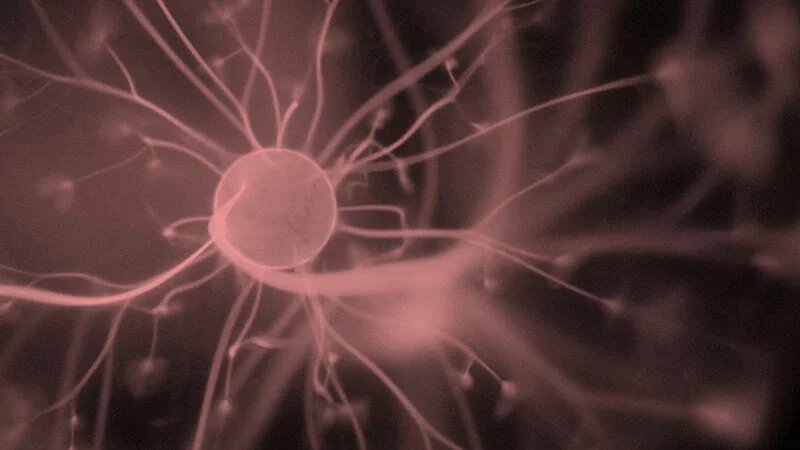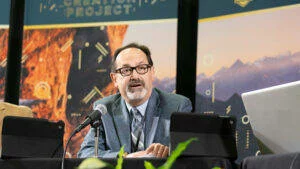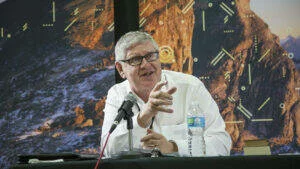 Thanks once again, Hans, for inviting us to this forum. I am also personally indebted that you allowed me to delay my response for family reasons. In my response, I would like to address the question that underpins your Redirect: Is it possible to have unbiased science on a topic that is pertinent to religion, especially when most of the scientist advocates are believers?
Thanks once again, Hans, for inviting us to this forum. I am also personally indebted that you allowed me to delay my response for family reasons. In my response, I would like to address the question that underpins your Redirect: Is it possible to have unbiased science on a topic that is pertinent to religion, especially when most of the scientist advocates are believers?
Overcoming Religious Precommitments
In your Redirect, you brought us all back to the question of religion in one way or another. In a way you were suggesting we operate from a naïve perspective philosophically. To Marcos Eberlin you said: “In a post-Kuhnian world,If all we had to go on were our own preferences, then yes, there would be a problem. But we do not rely only on our judgment. We strive to follow the evidence where it leads. I doubt we can ignore religious precommitments—such a stance evokes a ‘Baconian’ understanding of science, one that sees science as purely objective and free from all prejudice.” From your comments, it would appear that you believe we are irretrievably biased by our worldviews and unable to overcome them.
Not at all. We are human. If all we had to go on were our own preferences, then yes, there would be a problem. But we do not rely only on our judgment. We strive to follow the evidence where it leads.
In science we measure ideas against reality. In all but the smallest scales, things exist in quantifiable states that can be determined by experiment. We make measurements and run tests to check predictions based on our theory, and see what nature tells us. Abductive science not amenable to experiment is more difficult but can still be tested. The principles of competing hypotheses and the inference to the best explanation are probably familiar to you. When all hypotheses have been examined as to their likelihood, a valid inference to the best explanation can be made. As always, though, all conclusions are provisional. New information can require revision or abandonment of a theory long held to be true.
It’s not whether a theory has religious or anti-religious implications that determines its scientific validity, but whether it is grounded in evidence.Vasantha Raja, “Is Our Evolving Universe an Intelligent Design?,” Asian Tribune (World Institute for Asian Studies 12.2606). Accessed online, June 11, 2019, http://www.asiantribune.com/index.php?q=node/2872
Every scientist can tell you of experiments that gave unexpected results, that sent him or her down new paths. That’s not precommitment or bias. That’s nature talking back.
Nature Tells Us What Is Real
Genesis says, “In the beginning God . . . ” but up until a century ago physicists had assumed a steady-state eternal universe. A Belgian physicist (and priest)It can be the case that one set of facts can be equally well explained by two different interpretations, in which case, neither is conclusive, and the parties involved are free to argue and no doubt will. named Georges LeMaître was the first to realize that Einstein’s equations and the expansion of the universe implied a sudden origin of the universe. His findings were ridiculed and called the Big Bang.
In 1964, that theory with theological implications was validated. Arno Penzias and Robert Wilson were trying to make very sensitive measurements with an antenna that happened to have the right wavelength to pick up the radiation left over from the explosion of the Big Bang some 14 billion years before. They had a persistent signal they could not eliminate. They thought it was some sort of glitch in their antenna at first. After proving to themselves that it was a real signal from the cosmos, they contacted Dicke, Peebles, and Wilkinson at Princeton, whom they had heard had proposed the existence of the cosmic background radiation but had no measurement. The two groups published their work jointly.
LeMaître heard the news of this confirmation of his theory on his deathbed. Penzias and Wilson, who made the discovery, had no bias or religious motivation—they weren’t even looking for it. And it has been confirmed independently many times since then. Nature tells us what is real.
You mention Polanyi’s comments about some theories being driven by interpretation and preconception. I have not read that work so I do not know which theories he refers to. Quantum mechanics is probably one, as there are many ways to interpret it. It can be the case that one set of facts can be equally well explained by two different interpretations, in which case, neither is conclusive, and the parties involved are free to argue and no doubt will. This in fact may be the case for ID in situations where we have not decisively disproven unguided evolution as the cause. Nevertheless, there are still many cases where the interpretation should be clear.
Hans, in your Redirect you drive home the idea that all science has its basis in an underlying religious worldview. You make this case by saying, “The earliest scientists were often Christians whose theological convictions permeated their scientific research. . . . Science, for example, would not be possible without a prior belief that nature is rational. The rationality of nature reflects its Creator, a wise God who fashioned us as rational creatures.”
You ask, “Why is it so important to qualify that the ID argument is separable from religious premises? In your opinion, what would we lose if we were to recognize that all scientific research—including ID—is undergirded by religious foundations?”
Flipping the Question
If I may, I’d like to reformulate your question to me: What would we gain as a society or as scientists if we were to recognize that all scientific research—including ID—is undergirded by religious foundations?
Perhaps we could finally acknowledge not just that we depend on the rationality of nature, but that we depend on the existence of a very particular nature—on the stupendous fact that we live in a very particular universe with just the right constants to foster life,What would we gain as a society or as scientists if we were to recognize that all scientific research—including ID—is undergirded by religious foundations? on a planet that is ideally situated to allow the flourishing of life, with biochemistry that is capable of supporting beings like ourselves, in a time and place where scientific discovery is possible, where the world is rational and suited to our thought, with mathematics mysteriously corresponding to physics, and where consciousness can appear one day, permitting rational thought. How mysterious. How sublime.
It would be wonderful to be able to make that claim and have it be accepted. But the problem, as you know, is that we do not all recognize that religious foundation, and cannot agree on its premises.
Let me continue. The ID argument as an exercise in scientific reasoning does not depend on religious underpinnings, other than the belief that things are lawlike and rational. It does not operate in a presuppositional mode. My scientific method, strictly as method, is no different than a Buddhist’s or atheist’s. If we all plate equal aliquots of bacteria on selective media we will all get about the same number of colonies. Repeated many times, the averages will be quite good. To the bacteria, it doesn’t matter what I believe.
The conclusions we reach based on experiments, however, will be open to more possibilities. Here is where worldview can make a difference. A worldview that is limited to only materialist explanations must deny any evidence that violates that worldview; that limits the kinds of causes the materialist can consider. A worldview that includes theism, in contrast, is at least potentially open to material and non-material explanations or causes, though with greater or lesser degrees of reservation. There is one special case however. If the person takes the view known as evolutionary creationism, which holds that though God is the first cause, his action is hidden and undetectable, then the evolutionary creationist is in the same position as the materialist.
The concern among ID critics appears to be that the ID theorist will be biased and come to a wrong conclusion, and then stop! I know of no ID scientist who would behave in such a way. If we come upon a phenomenon that appears to have no explanation in terms of unguided matter and energy, we do our best to find one, then failing that we seek ways to test whether it was intelligently designed.
Consider the Flagellum
A case in point would be the bacterial flagellum. After first presenting his case, Mike Behe defended it in print, but others did so in the lab, testing each flagellar gene to see if it was required for function (they were), then comparing sequence similarity and homology between proteins of the flagellum and the Type III Secretory System for the likelihood of recruitment and relative ages of each structure. This work on the flagellum still continues.Rather than see a problem for ID, I see a danger for the materialist, who is forced by his preconceptions to deny any possibility of design. But little has appeared in peer-reviewed journals as yet. I suppose our critics might be excused for thinking all we were doing is writing blog posts, but it isn’t so. We did not see something that looked designed (the flagellum) and then quit doing science to do a rain dance and declare victory. We continued doing science and testing experimentally.
Rather than see a problem for ID, I see a danger for the materialist, who is forced by his preconceptions to deny any possibility of design. When he encounters de novo genes that he once thought were impossible to evolve, what does he do? Accept the possibility of design? Never! Instead, he flips to the new position that getting new genes must be easy. Most simply don’t bother to check.
But here is the hope. Some do! A few see the problem and begin to ask questions. Is this a work of “general” or “special” revelation? I’m not sure my categories match your terms, but here goes. It’s both. Grace perfects nature.Thomas Aquinas, Summa Theologica 1.8.2.
The way forward is for all sides to design experiments that allow for both possibilities. Maybe it is possible to get some functional protein folds from random sequence under some circumstances. Maybe some, maybe most functions really can’t be obtained that way, and some other explanation is required. Our motto is to follow the evidence wherever it leads. The motto means what it says. It would be great if scientists on all sides took up this motto.







Comments
Be the first one to make a comment!